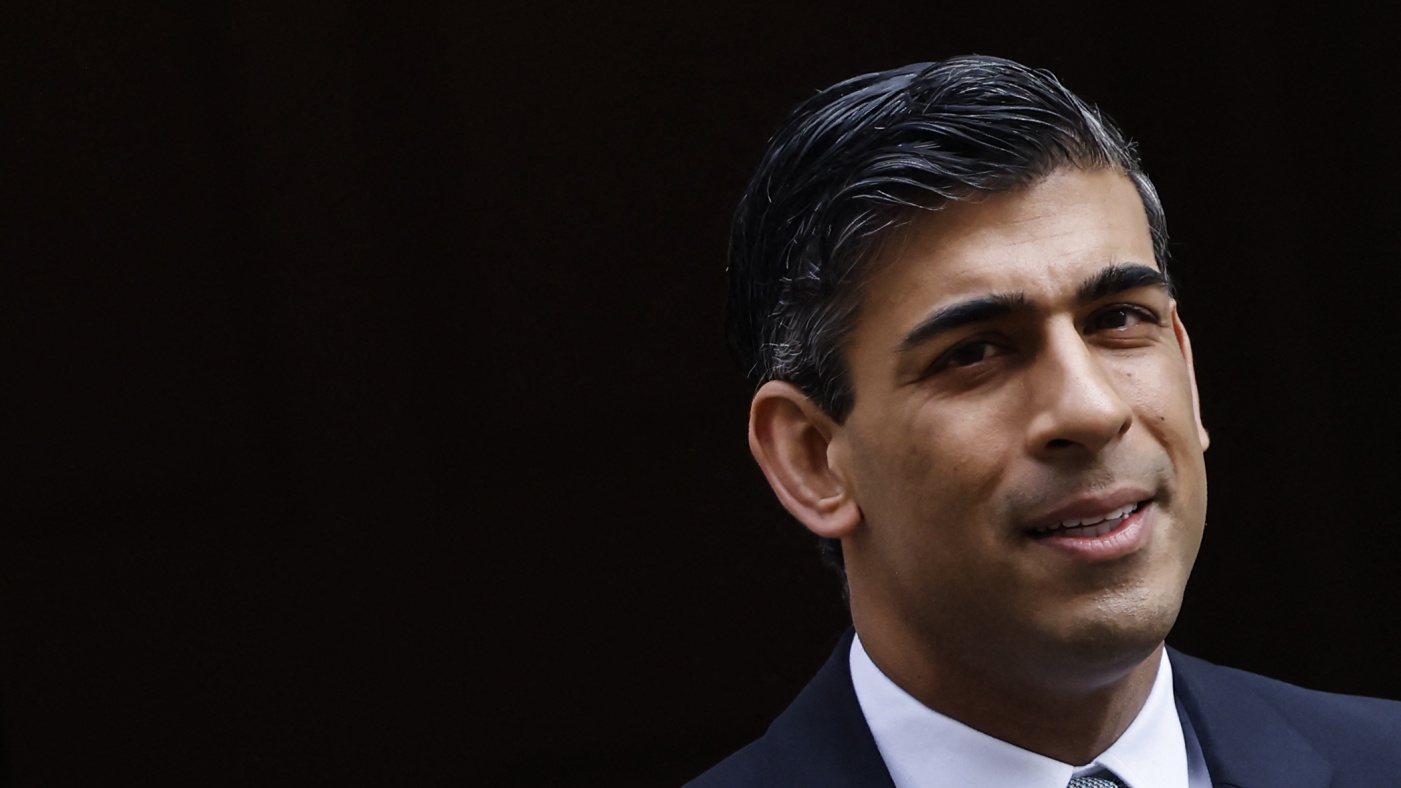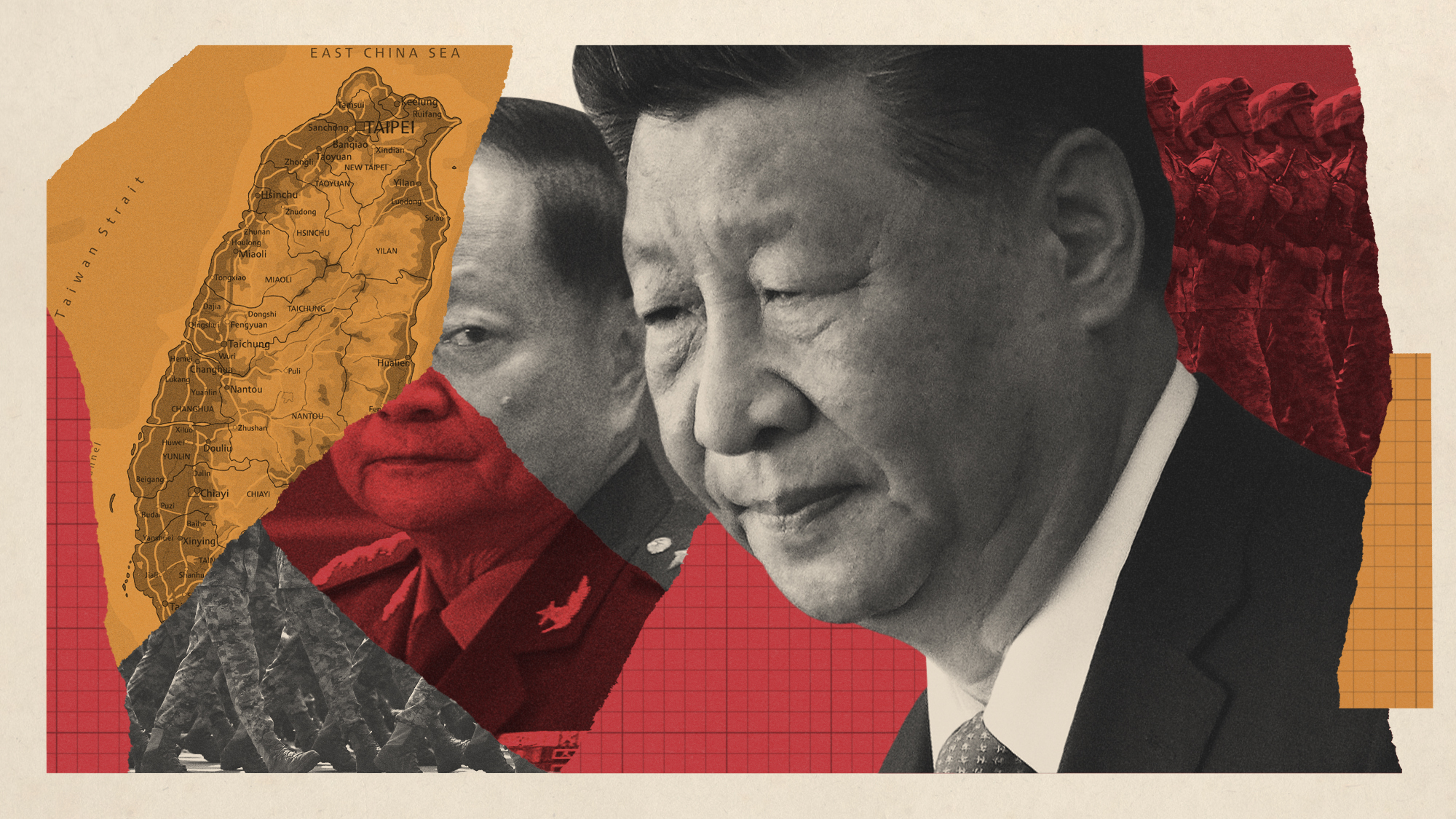Does Rishi Sunak have a China problem?
Mounting concerns over Chinese surveillance could prove to be a ‘crunch point’ for the prime minister

A free daily email with the biggest news stories of the day – and the best features from TheWeek.com
You are now subscribed
Your newsletter sign-up was successful
Prime Minister Rishi Sunak is coming under increasing pressure to adopt a “hawkish” view on China as concerns mount over the UK’s ability to deal with the threat of Chinese spy balloons.
Several unidentified flying objects have been shot down over North America in the past week, with one brought down by an American F-22 fighter jet after it had floated over the United States for several days.
The prime minister said that the UK was “in touch with our allies” over the apparent Beijing spy missions and said the government would do “whatever it takes” to protect the country. “We have something called the quick reaction alert force, which involves Typhoon planes which are kept on 24/7 readiness to police our airspace, which is incredibly important,” Sunak told reporters on Monday.
The Week
Escape your echo chamber. Get the facts behind the news, plus analysis from multiple perspectives.

Sign up for The Week's Free Newsletters
From our morning news briefing to a weekly Good News Newsletter, get the best of The Week delivered directly to your inbox.
From our morning news briefing to a weekly Good News Newsletter, get the best of The Week delivered directly to your inbox.
The prime minister made the comments after transport minister Richard Holden told Sky News it was “possible” that Chinese spy balloons had already flown over the UK.
The Telegraph reported yesterday that Defence Secretary Ben Wallace has ordered a security review in the wake of the advance of Chinese spy balloons into Western airspace, and would work closely with the US and other partners to “analyse intelligence and assess the dangers posed by the balloons”.
What did the papers say?
Amid increasing concerns over China’s attempts to gather intelligence in the West, the use of Chinese-made drones in British policing has also sparked security fears, according to a report in The Telegraph.
The paper reported that “more than two-thirds” of drones operated by police forces in the UK are made by a Chinese firm that is blacklisted in the US as a national security risk. Home Secretary Suella Braverman is now “urging” the police to ensure their use of Chinese technology does not expose them to interference by Beijing, said the paper.
A free daily email with the biggest news stories of the day – and the best features from TheWeek.com
The “many strands of concern” relating to Chinese surveillance might be “coalescing into something of a crunch point for Sunak”, suggested Politico’s London Playbook. And putting further pressure on Sunak is the news that his predecessor Liz Truss – who formally designated China a “threat” to the UK during her short tenure as prime minister – will give a major foreign policy speech in Japan on Friday, where she will highlight “growing concerns” over China and its place in the Indo-Pacific region.
Truss is not the only Tory grandee putting pressure on Sunak from the backbenches. Yesterday, former Conservative leader Iain Duncan Smith joined Uyghur activists outside the Foreign and Commonwealth Development Office in Westminster to protest a reported visit to Britain by the governor of Xinjiang, Erkin Tuniyaz. Duncan Smith said the visit, reportedly scheduled for this week, is “unacceptable”.
What next?
In November, Sunak “signalled the end of the ‘golden era’ of relations between Britain and China” when he used his first major foreign policy speech to warn of Xi Jinping’s increasingly authoritarian regime, said The Guardian. But he now finds himself under pressure to “go further” from some sections of his party as the integrated review of global security, mooted to take place on 7 March, approaches.
The review into the UK’s defence and foreign policy is due to be published in the run-up to Chancellor Jeremy Hunt’s first budget and is expected to “clearly spell out the increased risk to the UK from countries including Russia and China”, said the i news site.
While Hunt has said he will listen to demands to increase the UK’s military spending, the review is nevertheless likely to bring about a “clash” between the Treasury and the Ministry of Defence over the size of any spending rise.
Wallace is reportedly demanding an uplift of up to £11bn in the MoD’s budget over the next two years “just to put the defence budget back to where it was before rampant inflation ate away at resources”, said the paper.
In pressing his case, the defence secretary will now “not only be able to point to Ukraine, and a renewed push from Russia looming as winter turns to spring” but also the “elevated threat” from Beijing, the paper added.
Sorcha Bradley is a writer at The Week and a regular on “The Week Unwrapped” podcast. She worked at The Week magazine for a year and a half before taking up her current role with the digital team, where she mostly covers UK current affairs and politics. Before joining The Week, Sorcha worked at slow-news start-up Tortoise Media. She has also written for Sky News, The Sunday Times, the London Evening Standard and Grazia magazine, among other publications. She has a master’s in newspaper journalism from City, University of London, where she specialised in political journalism.
-
 Hyatt chair joins growing list of Epstein files losers
Hyatt chair joins growing list of Epstein files losersSpeed Read Thomas Pritzker stepped down as executive chair of the Hyatt Hotels Corporation over his ties with Jeffrey Epstein and Ghislaine Maxwell
-
 Political cartoons for February 17
Political cartoons for February 17Cartoons Tuesday’s political cartoons include a refreshing spritz of Pam, winter events, and more
-
 Alexei Navalny and Russia’s history of poisonings
Alexei Navalny and Russia’s history of poisoningsThe Explainer ‘Precise’ and ‘deniable’, the Kremlin’s use of poison to silence critics has become a ’geopolitical signature flourish’
-
 How are Democrats turning DOJ lemons into partisan lemonade?
How are Democrats turning DOJ lemons into partisan lemonade?TODAY’S BIG QUESTION As the Trump administration continues to try — and fail — at indicting its political enemies, Democratic lawmakers have begun seizing the moment for themselves
-
 How corrupt is the UK?
How corrupt is the UK?The Explainer Decline in standards ‘risks becoming a defining feature of our political culture’ as Britain falls to lowest ever score on global index
-
 How did ‘wine moms’ become the face of anti-ICE protests?
How did ‘wine moms’ become the face of anti-ICE protests?Today’s Big Question Women lead the resistance to Trump’s deportations
-
 How are Democrats trying to reform ICE?
How are Democrats trying to reform ICE?Today’s Big Question Democratic leadership has put forth several demands for the agency
-
 What do Xi’s military purges mean for Taiwan?
What do Xi’s military purges mean for Taiwan?Today’s Big Question Analysts say China’s leader is still focused on reunification
-
 Why is Tulsi Gabbard trying to relitigate the 2020 election now?
Why is Tulsi Gabbard trying to relitigate the 2020 election now?Today's Big Question Trump has never conceded his loss that year
-
 What is at stake for Starmer in China?
What is at stake for Starmer in China?Today’s Big Question The British PM will have to ‘play it tough’ to achieve ‘substantive’ outcomes, while China looks to draw Britain away from US influence
-
 Will Democrats impeach Kristi Noem?
Will Democrats impeach Kristi Noem?Today’s Big Question Centrists, lefty activists also debate abolishing ICE